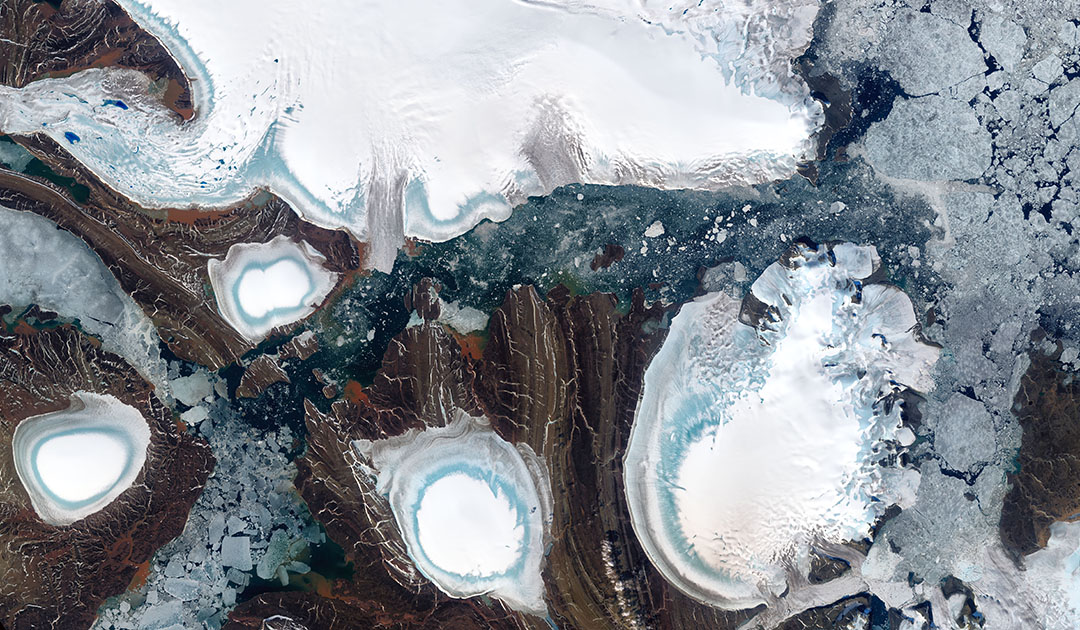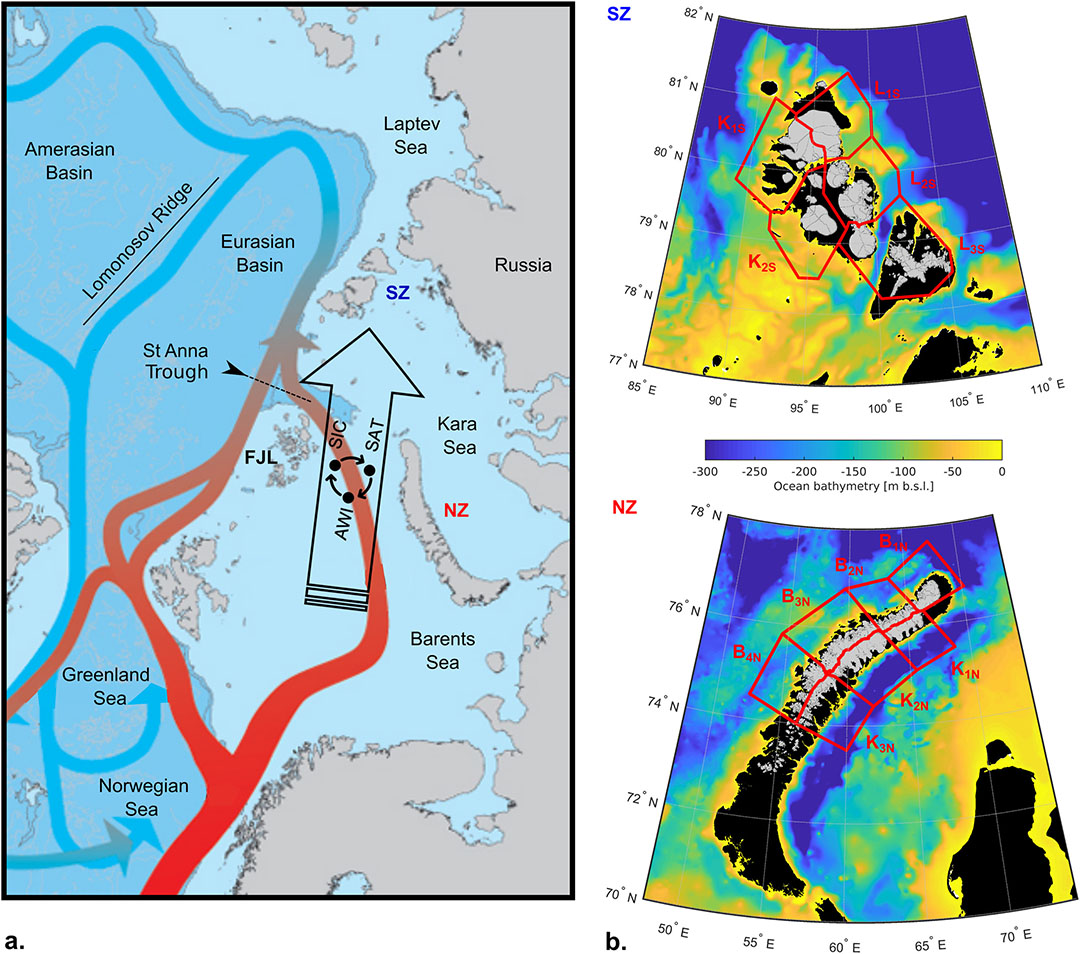
The news about massive ice losses in the Arctic does not stop. After reporting near-record losses from the Greenland ice sheet earlier this week, a study released Monday on the ice caps of Russia’s Novaya Zemlya and Severnaya Zemlya archipelagos adds to the concern. According to the University of Edinburgh researchers, the two island groups lose billions of cubic metres of ice every year. According to the report, between 2010 and 2018, the loss was so great that the meltwater would put an area the size of the Netherlands one metre under water. Scientists suspect that warming of the Arctic Ocean is contributing significantly to the acceleration of ice loss.
The ocean is warming much faster in the Arctic than in lower latitudes. The Barents Sea, which is under a strong Atlantic influence, is described as a hotspot of Arctic warming. In addition to sea ice retreat, scientists blame other factors such as the transport of warm Atlantic water, shifts in atmospheric storm paths and winds, and various feedback and radiative processes for the faster warming. Scientists refer to this northeastward spread of Atlantic climate as “Atlantification.”

For the current study, the researchers used data from the CryoSat-2 satellite, which monitors changes in the height and mass of ice caps and glaciers, to estimate volume and mass losses on the two island groups for the years 2010 to 2018. They compared these results with climate data from the same period and found a clear link between rising air and sea temperatures and increasing ice loss on Novaya and Severnaya Zemlya. According to the analyses, both archipelagos lost 11.4 billion tons of ice per year between 2010 and 2018, about as much as the giant Greenland ice cap lost in one day in the summer of 2019.
Ice loss is greatest on Novaya Zemlya, at 9.7 gigatons per year, and is driven primarily by a coupled mechanism of surface melt and ice dynamics, according to the study. On Severnaya Zemlya, ice loss occurs mainly at glacier streams flowing into the sea, which are undercut by warm Atlantic waters. A coupling of atmospheric and oceanic processes could not be detected by the researchers on the much more northerly island group, which is why the surface mass balance is still positive here. However, the northeastward shift of the Atlantic climate will continue and lead to further losses on the glaciers and ice caps in the Eurasian High Arctic as well. Already, the impact of melt on glaciers and ice caps in the eastern Russian Arctic appears significant, bringing the potential for regime shifts, the research team said.

“The Russian Arctic is largely inaccessible, but satellite data has enabled us to monitor changes to its ice caps and glaciers. As has been observed elsewhere in the world, ice loss in the region is accelerating. As the climate continues to warm, significant ice loss in the Russian Arctic will have clear impacts for sea level rise.”
Dr Paul Tepes, School of GeoSciences at the University of Edinburgh and lead author of the study.
The authors believe that the study could be used to predict future ice loss in regions where similar patterns in atmospheric and ocean temperature changes are observed, and also to improve global sea level rise projections.
Julia Hager, PolarJournal
More on the subject:





